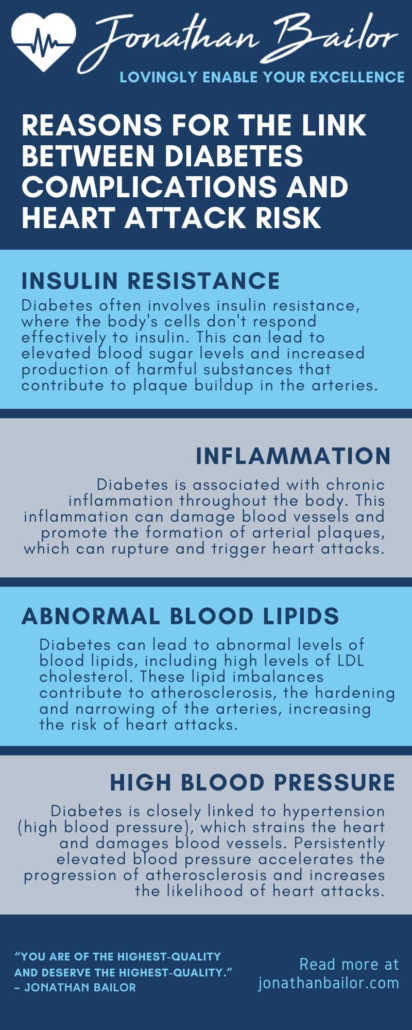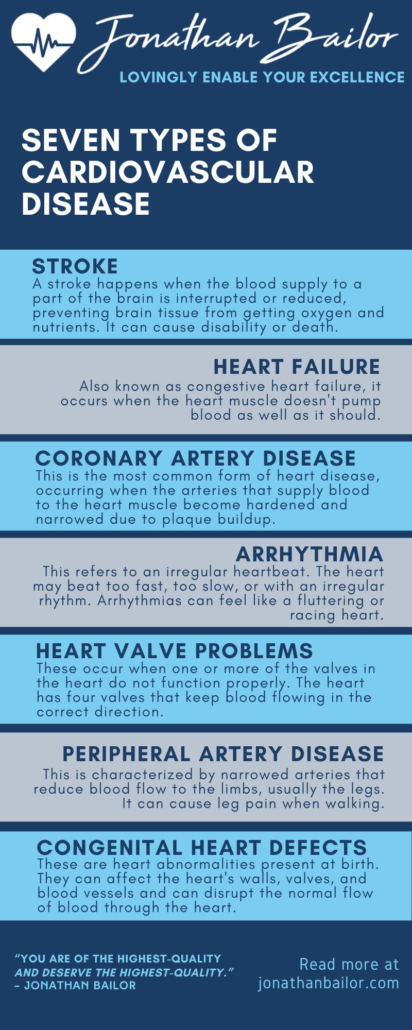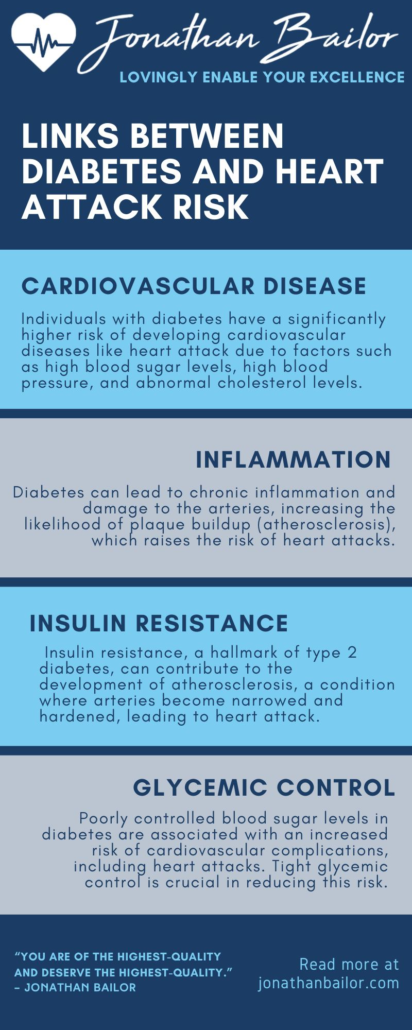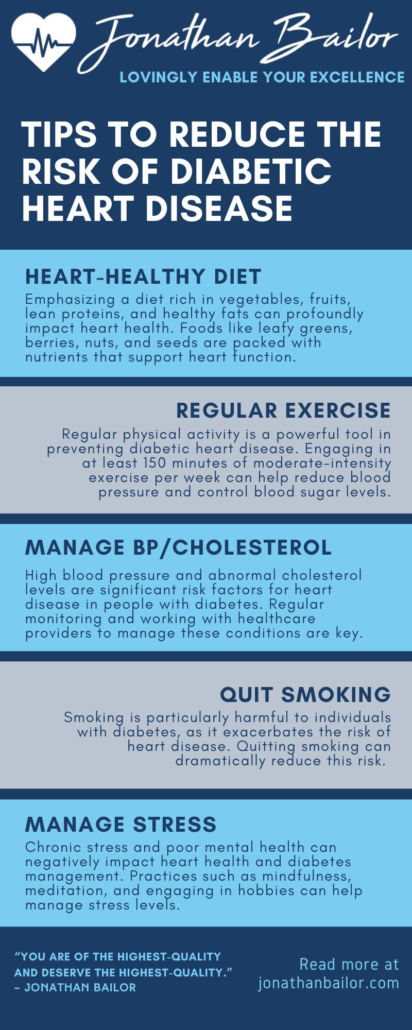The Hidden Link: Diabetes Complications and Heart Attack Risk
Did you know that having diabetes significantly increases your risk for heart disease and heart attack? In this comprehensive Hormone Health Guide, Jonathan Bailor discusses the hidden link between diabetes and heart disease and provides tips that you can use to help lower your risk.
Navigating the maze of health information can often feel like trying to solve a challenging puzzle with several missing pieces, especially when understanding how one health condition might influence another seemingly unrelated one. Today, there’s a growing recognition of a connection that might not be immediately obvious but is crucially important – the link between diabetes complications and an increased risk of heart attack.
Understanding this connection is not just about stacking up facts. It’s about piecing together a clearer picture of health, especially for those who might feel that the sands of time make them more vulnerable to health issues. It’s about empowering with knowledge to make informed decisions that enhance well-being and longevity.
Why does this matter? Because knowledge is more than power—it’s protection. For anyone navigating the complexities of diabetes, it’s vital to understand not just the immediate impacts but also how it interacts with heart health. This isn’t just another health scare thrown into the mix to worry about. It’s an opportunity to take control, to make changes that could not only improve quality of life but potentially save it.
Imagine if managing diabetes could also mean taking a proactive stance against heart disease. It’s a concept that might seem daunting but is rooted in a deep understanding of our body’s interconnected systems. By focusing on this link, it’s possible to unlock a strategy that addresses not just diabetes but also one of the leading causes of mortality worldwide – heart disease.
This understanding is not about diving deep into medical jargon that leaves more questions than answers. It’s about clear, accessible insights that illuminate the path to better health. It’s about transforming fear into actionable knowledge. Whether adjusting diet, enhancing physical activity, or understanding medications better, every step taken is a move towards a heart-healthier future.
Sharing this insight could be the beacon of hope someone was looking for, the nudge needed to talk to a healthcare provider, or the spark that ignites a community to rally for better health practices. It’s a conversation starter, a lifeline, and a testament to the belief that together, a healthier future is not just possible but within reach.
So, let’s embark on this journey of understanding, equipped with the knowledge that every small change can lead to significant health victories. When it comes to health, every piece of information matters, and understanding the hidden links could be the key to unlocking a fuller, healthier life.

Feeling Better Is Priceless, That's Why We Don't Put A Price On It!
“It’s Like A Free and Medically Valid Version of Noom and Weight Watchers Online”
~ Dr. Doctor Matthew Oleshiak, MD
Click the 'LEARN MORE' button below for free lifetime access to the fast fix program developed by Jonathan and top Ivy League Medical Doctors
LEARN MOREP.S. It's not a free trial. It's not part of the program for free. The entire program is free, forever, for real! No credit card needed.
What is Diabetes?
Diabetes is when the body struggles to manage blood sugar levels effectively. It’s like a miscommunication within the body’s system for turning food into energy.
Usually, the pancreas produces insulin, a key that allows sugar to enter cells from the bloodstream, used for energy. In diabetes, this process is disrupted. Type 1 diabetes involves the body’s failure to make insulin, requiring daily insulin administration. Type 2 diabetes, more common, consists of the body not using insulin correctly, often managed through diet, exercise, and sometimes medication.
Understanding diabetes is the first step in managing it and empowering individuals to live full, healthy lives.
What is Heart Disease?
Heart disease, a term often heard, encompasses a range of conditions affecting the heart, falling under the broader umbrella of cardiovascular disease.
Cardiovascular disease refers to disorders of the heart and blood vessels, a complex system responsible for circulating blood and delivering vital nutrients throughout the body. It’s like a network of roads and highways; when something goes wrong, it can impact the entire system’s efficiency and health.
There are several types of cardiovascular disease, including:
Coronary Artery Disease (CAD)
This is the most common form of heart disease, occurring when the arteries that supply blood to the heart muscle become hardened and narrowed due to plaque buildup. This can reduce blood flow to the heart, leading to chest pain or heart attacks.
Stroke
A stroke happens when the blood supply to a part of the brain is interrupted or reduced, preventing brain tissue from getting oxygen and nutrients. Brain cells begin to die within minutes, which can result in lasting brain damage, long-term disability, or even death.
Heart Failure
Also known as congestive heart failure, it occurs when the heart muscle doesn’t pump blood as well as it should. Conditions like narrowed arteries in the heart (CAD) or high blood pressure gradually leave the heart too weak or stiff to fill and pump efficiently.
Arrhythmia
This refers to an irregular heartbeat. The heart may beat too fast, too slow, or with an irregular rhythm. Arrhythmias can feel like a fluttering or racing heart. and can be benign or a sign of a serious health problem.
Heart Valve Problems
These occur when one or more of the valves in the heart do not function properly. The heart has four valves that keep blood flowing in the correct direction. If the valves don’t open or close correctly, it can disrupt the blood flow from the heart through the body.
Peripheral Artery Disease
This condition is characterized by narrowed arteries that reduce blood flow to the limbs, usually the legs. It can cause leg pain when walking (claudication) and is often a sign of a widespread accumulation of fatty deposits in the arteries (atherosclerosis).
Congenital Heart Defects
These are heart abnormalities present at birth. They can affect the heart’s walls, valves, and blood vessels and can disrupt the normal flow of blood through the heart. The severity of congenital heart defects can vary widely, from simple problems such as a hole in the heart to severe malformations such as missing or poorly formed parts of the heart.
Understanding heart disease in the context of cardiovascular health highlights the interconnected nature of our body’s systems.
It’s a reminder that protecting heart health is crucial for overall well-being, involving everything from nutrition and exercise to managing stress and regular check-ups with healthcare providers. It’s about nurturing the heart, that vital engine, to ensure it runs smoothly for years to come.

What is the link between diabetes and heart attack?
Understanding the connection between diabetes and heart disease is akin to piecing together a puzzle where each piece represents a different aspect of health. It’s well-documented that individuals with diabetes are at a higher risk of developing heart disease and stroke or experiencing a heart attack, even when they meticulously manage their blood sugar levels.
The link between these conditions is not solely about blood sugar control but involves a complex interplay of various factors that contribute to cardiovascular risk.
Firstly, diabetes itself can cause changes in the blood vessels, including arteries that nourish the heart. Over time, high blood sugar levels can damage the artery walls, making them more susceptible to atherosclerosis, a condition characterized by the buildup of fatty deposits known as plaque. This buildup can narrow the arteries or even completely block them, leading to a heart attack or stroke.
Moreover, diabetes often doesn’t come alone; it tends to travel in the company of other conditions that increase cardiovascular risk, such as high blood pressure, obesity, and abnormal cholesterol levels. Together, these conditions create a state of chronic inflammation in the body, further accelerating the process of atherosclerosis and making blood vessels less flexible and more prone to injury.
Insulin resistance, a hallmark of type 2 diabetes, doesn’t just affect the body’s ability to use insulin effectively. It’s also associated with a host of metabolic abnormalities that can contribute to cardiovascular disease. These include an increased tendency for blood to clot, which can lead to sudden blockage of a coronary artery, and a heightened state of inflammation, which plays a crucial role in heart attack and stroke.
In essence, while controlling blood sugar is crucial for people with diabetes, it’s equally important to manage other risk factors for heart disease. This holistic approach to health management can help mitigate the increased risk of heart attack and ensure a heart-healthier future for those living with diabetes.

Reducing the Risk of Diabetic Heart Disease
Navigating through life with diabetes requires a mindful approach to health, especially when it comes to safeguarding the heart. While managing blood sugar levels is a cornerstone of diabetes care, it’s equally vital to adopt lifestyle habits that specifically target the prevention of diabetic heart disease. Here are several strategies to fortify the heart against the added risks that come with diabetes.
1. Prioritize Heart-Healthy Nutrition
Emphasizing a diet rich in vegetables, fruits, lean proteins, and healthy fats can profoundly impact heart health. Foods like leafy greens, berries, nuts, and seeds are packed with nutrients that support heart function and reduce inflammation. Including sources of omega-3 fatty acids, such as fish or flaxseeds, can also help lower the risk of heart disease by improving blood lipid profiles and reducing arterial inflammation.
2. Stay Active with Regular Exercise
Regular physical activity is a powerful tool in preventing diabetic heart disease. Engaging in at least 150 minutes of moderate-intensity exercise per week, such as brisk walking, cycling, or swimming, can improve cardiovascular fitness, reduce blood pressure, and help control blood sugar levels. Exercise also aids in maintaining a healthy weight, which is crucial for minimizing heart disease risk.
3. Monitor and Manage Blood Pressure and Cholesterol
High blood pressure and abnormal cholesterol levels are significant risk factors for heart disease in people with diabetes. Regular monitoring and working with healthcare providers to manage these conditions are essential. Lifestyle changes, along with medication if necessary, can help keep these risk factors in check and protect the heart.
4. Quit Smoking
Smoking is particularly harmful to individuals with diabetes, as it exacerbates the risk of heart disease. Quitting smoking can dramatically reduce the risk of cardiovascular complications. For those struggling to quit, seeking support through cessation programs or therapies can be a life-saving decision.
5. Stress Management and Mental Well-being
Chronic stress and poor mental health can negatively impact heart health and diabetes management. Practices such as mindfulness, meditation, and engaging in hobbies or activities that bring joy can help manage stress levels. Additionally, getting adequate sleep and seeking support from friends, family, or professionals can improve overall well-being and reduce the risk of heart disease.
Embracing these preventive measures can not only enhance the quality of life but also empower individuals with diabetes to take control of their heart health. It’s about making informed choices every day that add up to a healthier heart and a fuller life.

FAQ on Hormone Health
1. What role do hormones play in overall health?
Hormones are the body’s chemical messengers, pivotal in managing bodily functions from hunger, growth, and mood to reproductive health and metabolism. They travel through the bloodstream to tissues and organs, delivering messages that tell the organs what to do and when. A delicate balance of hormones is crucial for maintaining overall health and well-being. When this balance is disrupted, it can lead to a variety of health issues, ranging from diabetes to thyroid disorders, affecting every aspect of health.
2. How does insulin affect my body and relate to diabetes?
Insulin is a vital hormone the pancreas produces, essential for regulating blood sugar levels. When you eat, insulin helps transport sugar from the bloodstream into your cells for energy. In diabetes, the body’s ability to produce or use insulin effectively is impaired, leading to elevated blood sugar levels. Over time, high blood sugar can damage various body systems, emphasizing the importance of managing insulin levels for those with or at risk for diabetes.
3. Can lifestyle changes impact hormonal balance?
Absolutely. Lifestyle factors such as diet, exercise, sleep, and stress management play a significant role in maintaining hormonal balance. For example, regular physical activity can help regulate insulin sensitivity, a crucial factor in diabetes management. Adequate sleep and stress reduction are also essential for balancing hormones like cortisol, which can influence other hormone levels. Adopting a healthy lifestyle can support optimal hormone function and contribute to overall health.
4. What are the signs of hormonal imbalance?
Signs of hormonal imbalance can vary widely depending on which hormones are affected but may include fatigue, unexplained weight changes, mood swings, sleep disturbances, and changes in appetite or sex drive. For instance, insulin resistance, a precursor to diabetes, might manifest as increased hunger and weight gain, particularly around the abdomen. Recognizing these symptoms early can lead to more effective management and treatment.
5. How can I support my hormone health naturally?
Supporting hormone health naturally involves a holistic approach to lifestyle choices. Prioritizing a balanced diet rich in vegetables, fruits, lean proteins, and healthy fats can support insulin regulation and overall hormone balance. Engaging in regular exercise, ensuring quality sleep, managing stress through mindfulness or relaxation techniques, and avoiding toxins in the environment are also critical steps. For those with specific concerns like diabetes, closely monitoring blood sugar levels and consulting healthcare providers for personalized advice is essential.
Maintaining hormone health is a critical aspect of overall well-being, and understanding the role of lifestyle factors can empower individuals to make informed choices for a healthier life.
Closing Thoughts: Empower Through Sharing
In embracing the journey toward understanding the intricate dance between diabetes and heart health, the power of informed decisions shines through. This exploration isn’t just about personal enlightenment; it’s an opportunity to extend a hand to those we hold dear, guiding them along a path to improved well-being. Knowledge, especially about our health, is more than a personal treasure—it’s a gift meant for sharing. Consider passing this valuable insight to friends and family through email or a quick post on your favorite social media platforms. By sharing, we can build a community fortified with the knowledge to live healthier, fuller lives.
Feeling Better Is Priceless, That's Why We Don't Put A Price On It!
“It’s Like A Free and Medically Valid Version of Noom and Weight Watchers Online”
~ Dr. Doctor Matthew Oleshiak, MD
Click the 'LEARN MORE' button below for free lifetime access to the fast fix program developed by Jonathan and top Ivy League Medical Doctors
LEARN MOREP.S. It's not a free trial. It's not part of the program for free. The entire program is free, forever, for real! No credit card needed.




